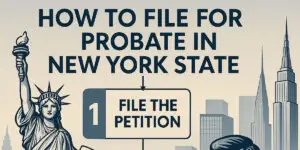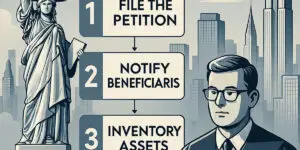Digital assets
Digital assets are non-physical assets owned by individuals online. These assets include,
Social media accounts, digital videos, digital photos, digital documents, brokerage accounts, stocks/shares, cryptocurrencies, cloud storage accounts, etc.
In estate planning, one major problem was the accessibility of these assets by a loved one. At the death of a loved one, the heirs or beneficiaries find it hard to gain access to their digital assets. This is either because they do not have the logins of the deceased relative or the custodian’s privacy policy does not permit them.
Over time as this became a significant issue, steps were taken to tackle it. The Uniform Fiduciary Access to Digital Assets Act (UFADAA) was established to proffer a solution to the accessibility problem. Still, it was stopped due to complaints from high digital-providing companies like Google and Facebook. They argued that the access that the Uniform Fiduciary Access to Digital Assets Act (UFADAA) granted fiduciaries were too much.
This led to The Revised Uniform Fiduciary Access to Digital Assets Act (RUFADAA), which adjusted the Uniform Fiduciary Access to Digital Assets Act (UFADAA). Many states immediately accepted this new act.
The Revised Uniform Fiduciary Access to Digital Assets Act operated on its three tier-based principles, which made provisions for different instances on how a person’s assets will be handled and accessed by their fiduciaries at their death.
A brief on the three tiers of the Revised Uniform Fiduciary Access to Digital Assets Act
RUFADAA tier one – “online tools”: RUFADAA tier one online tool allows users to provide information on how their digital assets will be managed when they die or in the case of incapacitation. The user’s instructions will be prioritized over all other instructions, including Terms of Service (as long as that online tool can still be modified or deleted at any time).
RUFADAA tier two – legal documents: The second tier of the RUFADAA provides a situation where a user does not give instructions using the online tool. In this case, RUFADAA will examine the users’ legal documents, such as a will, trust, or power of attorney. Such compositions can be used to explicitly grant fiduciary access to any/all digital access or to restrict such access.
Tier three – terms-of-service agreements: This tier of RUFADAA provides that if the user does not provide online instructions via an online tool (RUFADAA TIER ONE), neither did the user give specifications concerning his digital assets in his traditional legal document (RUFADAA TIER TWO – LEGAL DOCUMENTS) then the custodian of the account will determine who will have access to the history and who wouldn’t depending on the custodian’s terms of service.
State-by-State Digital Estate Planning Laws
Listed below are some states which have passed these laws to proffer solutions for the accessibility of digital estate.
Arizona: On May 11, 2016, the state of Arizona approved the SB 1413 Revised Uniform Fiduciary Access to Digital Assets Act, which authorizes a decedent’s fiduciary, say, an executor or trustee to access and manage digital assets and electronic communications. It was approved by the Governor and filed with the Secretary of State.
Connecticut: In Connecticut, the SB 262 Public Act No. 05-136 became effective on October 1, 2005. This law provides that the fiduciary – an executor – must provide documentation of the executor’s appointment before he is granted access to the deceased digital assets. He may be able to access the dead’s email. Also, the state requires a death certificate.
Alabama: HB 138 Revised Uniform Fiduciary Access to Digital Assets Act
Alaska: HB 108 Revised Uniform Fiduciary Access to Digital Assets Act
California: AB-691 Revised Uniform Fiduciary Access to Digital Assets Act
Delaware: HB 345 Fiduciary Accesses to Digital Assets and Digital Accounts. This act permits the fiduciaries to access and control the digital assets and digital accounts of an incapacitated person, principal under a personal power of attorney, decedents or settlors, and beneficiaries of trusts.
Up to 50 states have enacted these laws; some of them not mentioned above include Florida, Arkansas, Colorado, Georgia, Hawaii, Idaho, Illinois, Indiana, Iowa, Kansas, Kentucky, Louisiana, Maryland, Massachusetts, Michigan, Minnesota, Mississippi, Missouri, Montana, Nebraska, Nevada, New Hampshire, New Jersey, New Mexico, New York, North Carolina, North Dakota, Ohio, Oklahoma, Oregon, Pennsylvania, Rhode Island, South Carolina, South Dakota, Texas, Tennessee, Utah, Vermont, Virginia, Washington, Washington, D.C. (District of Columbia), West Virginia, Wisconsin, Wyoming.
Planning for your digital estate requires you to get the guardians of an attorney. Our attorneys are always available to help.








